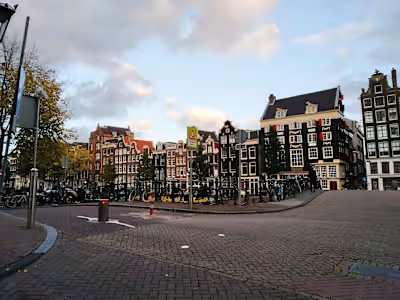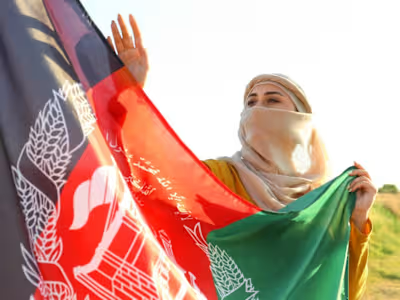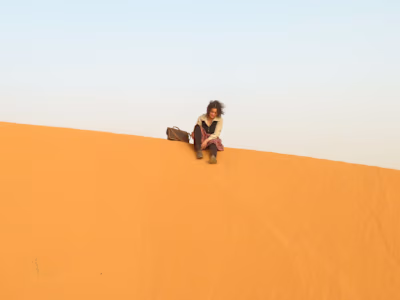Critiques Over EU's New Refugee Camps
Ylva Johansson, EU home affairs commissioner, has announced a fund of 250 million euros for the creation of five new refugee camps on the Greek islands of Lesbos, Samos, Chios, Kos, and Leros. The camps will include areas for families and vulnerable people and will allow children to attend school (Aljazeera, 2021). Following the statement Notis Mitarachi, Greek Immigration and Asylum minister, announced that the facilities will be ready in three months and will offer dignified living conditions (Fallon, 2021).
Doctors Without Borders (DWB) soon reacted by publishing on its website a statement against the EU’s decision. According to it, the creation of new centers will only perpetuate the already existing problems and will not constitute a proper solution. In the statement, it can be read that the EU should instead focus on facilitating the asylum procedures which often take too long to be completed (DWB, 2021). As a result, refugee camps are frequently overcrowded. An EU Commission spokesperson told Humanexus:
“Significant efforts have already been made to address overcrowding through the transfer of vulnerable people to the mainland and ongoing relocation of unaccompanied children and families with children to other Member States.”
The number of people in the camps has been reduced from 42,000 in March 2020, to under 14,000. Moreover, over 3,500 unaccompanied children and families of children with serious illnesses have already been relocated. However, some asylum procedures still take too long to be processed. Emilie Castaignet, DWB field coordinator in Samos, told Humanexus:
“On paper people come and then, in a few months, they are done. But in reality, we see people in the camps who have been here for many years.”
Since the EU-Turkey agreement in March 2016, thousands of refugees have remained trapped in refugee camps on Greek islands while waiting for their asylum procedures to be processed (DWB, 2019). According to a Commission spokesperson, this may change soon as the EU Commission is proposing to introduce an integrated border procedure for all people entering the EU without permission. The procedure will include a pre-entry screening covering identification, a health and security check, taking fingerprints, and registration in the Eurodac database. Part of the border procedure will include swift decisions on whether people will be able to apply for asylum or not.
But asylum procedures are not the only concern for DWB. Castaignet also raised concerns over the sustainability of the new camps:
“On the day the camp will open it will be very beautiful but then it would be what we see here now.”
Currently, thousands of refugees are living in overcrowded camps in atrocious conditions with poor access to sanitation and clean water. Multiple times, organizations such as DWB and Human Rights Watch (HRW) have warned about the conditions of these camps, but they were largely ignored. This led to devastating consequences.
In September 2020, Moria, one of the main refugee camps situated in Lesbos, was destroyed by a fire. Approximately 13,000 people were left without shelter. The center was more than four times over its capacity when the fire broke out (Smith, 2020). Refugees were moved to a temporary settlement named Mavrovouni camp, which soon became known as Moria 2.0 for its atrocious conditions. People were forced to live in tents washing their clothes in the sea to save the limited running water available (Fallon, 2020).
By December 2020, analyses revealed the presence of elevated lead levels in the area (OCHA, 2021). Lead is highly toxic when inhaled or ingested especially for young children and pregnant women (HRW, 2021). During meetings in January and February, both Mr Mitarachi and EU Commission officials stated that all the tents had been removed from areas at risk. However, through satellite images and interviews with refugees, the humanitarian organization HRW found that 90 tents hosting 70 families were left near the contaminated area. Among them, there are subjects at risk such as children and pregnant women (OCHA, 2021).
But this is not the only camp with inadequate living conditions. Vathy camp, on the island of Samos, is also extremely overcrowded with people forced to live in tents. The camp has poor access to toilets and basic sanitation. People share their spaces with wild animals, such as snakes and rats (DWB, 2020b). DWB is running a center on the island offering sexual and reproductive healthcare and mental health support. The organization is also providing the camp with more than 26,000 gallons of water each day and rat traps, but more help is needed.
Castaignet is particularly concerned about the refugees’ mental health. In 2020 DWB’s child psychologists treated 49 children with suicidal thoughts and in November 2020, 60% of DWB’s new patients expressed suicidal thoughts (DWB, 2020a). The creation of a new camp may at first help solve some of the problems, but it won’t do much for the refugees’ mental health. According to Castaignet, even though a new camp will be built, the healthcare services will be the same:
“So, there will be no improvement. We have the same number of doctors unless they manage to find more people, but we are afraid that they will have to rely again on the NGOs to provide all the additional support services.”
According to a Commission spokesperson:
“The (EU) Commission is working with UN Agencies and NGOs in Greece to improve the reception conditions of asylum seekers and provide a range of medical, mental health, and psychosocial support services to migrants on the Greek islands and in the mainland.”
The EU Commission has been financially supporting the provision of mental health and psychosocial support, as part of the protection activities by the UNHCR Emergency Assistance Project. However, this may not be enough. Castaignet stated:
“What we see here in the camp is really bad mental health conditions and there are almost no services to support people.”
Ylva Johansson has affirmed that the new camps will deliver acceptable standards, and: “Be humane and allow for areas for families and vulnerable people” (Aljazeera, 2021), but many NGOs still openly declare their disapproval. Castaignet said:
“They said no more Moria, but they are just repeating it. These new camps are a copy-paste of Moria. They are exactly the same thing: massive camps where people will be trapped, disconnected from society.”
Like this project
Posted Jun 14, 2024
An interview with Emilie Castaignet, Doctor With Border field coordinator in Samos to explore the refugee crisis.
Likes
0
Views
11





